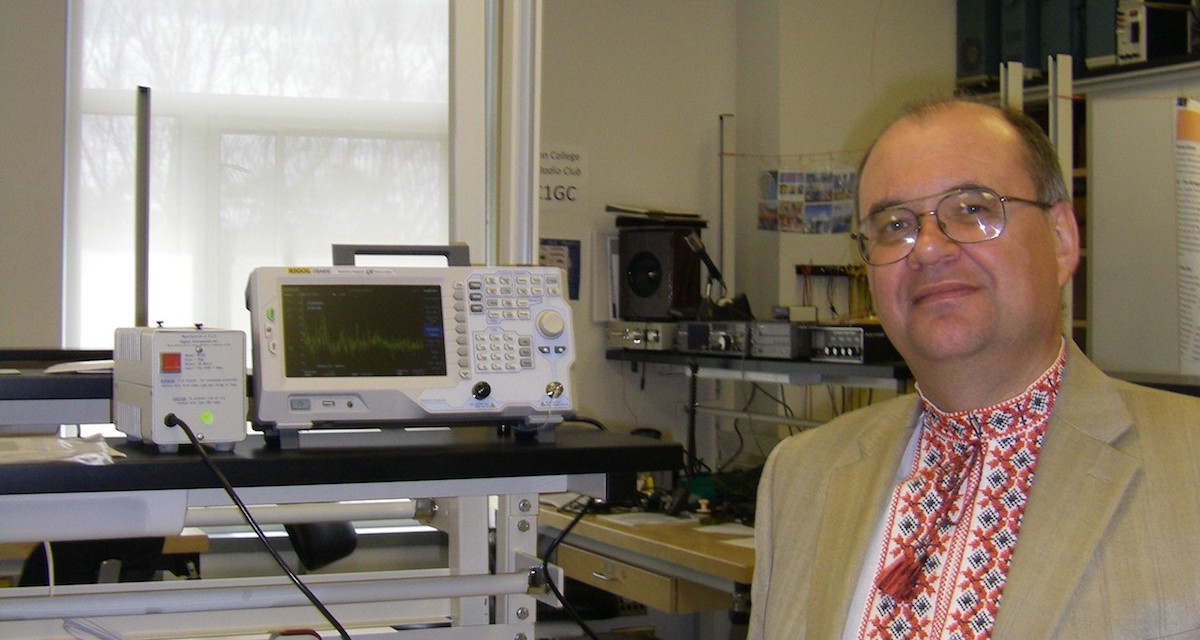Sabbatical Sojourns: Oleksiy Svitelskiy
Over the course of the spring 2018 semester, five faculty members took sabbaticals to engage their fields. We spoke with each professor to learn more about their undertakings to share in The Bell and the upcoming fall 2018 issue of STILLPOINT. This is the fifth installment of “Sabbatical Sojourns.”
Sabbatical allowed Oleksiy Svitelskiy (physics) to kickstart two projects funded by a grant from the National Science Foundation (NSF). These awards also opened up opportunities for developing capabilities of his laboratory, which will enhance the teaching and learning experience.
In collaboration with Towson University on the first project, Svitelskiy explored properties of electronics and photonics materials when their dimensionality reduces from bulk to thin films and thin wires—for example, fiberglass in the form of wool for thermal insulation, versus as hard and brittle window glass. The NSF grant of $203,000 for three years is a reward for the long-term efforts of Svitelskiy and his students on developing his Gordon laboratory for ultrasound studies of material properties. By the terms of the project, Gordon students use the lab to study elasticity of ferroelectric films and structures that are provided by Towson University collaborators.
Another endeavor is the realization of Svitelskiy’s ideas on a new approach to sorting microparticles, which can have applications in medicine, biology and engineering. “The sorted particles can be, for example, drug particles that have to be delivered to the necessary part of the body at the right time,” Svitelskiy says. “If the size of the particles is not right, they will come to the place either too early or too late, or they will not come to where intended at all.” Students from Gordon and Boston University will work together in this collaborative project under an NSF award, of which Svitelskiy’s portion constitutes $326,000 for three years.
Svitelskiy is also taking time to think on future projects—including one with David Lee (physics), studying fundamental properties of metallic glasses fabricated on Gordon’s campus. This project attracted the interest of colleagues at the National High Magnetic Field Laboratory, which earned Svitelskiy one week at their lab in Tallahassee, FL, using the top-of-the-line scientific equipment. The series of experiments, which revealed a new physical effect that has not yet been described, offers the potential for Svitelskiy and the College to take leadership in a new exciting research project.
For Svitelskiy, the most important aspect of his work is having Gordon students participating at every stage. “They gain numerous skills and habits, useful for their future professional life,” he says. “My success is inseparable from success of my student.”
 The Bell
The Bell